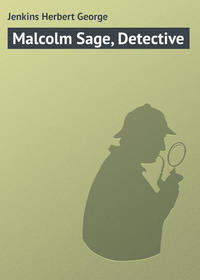
John Dene of Toronto: A Comedy of Whitehall
When eventually the mother of the child had led it away pacified by the attentions of Dorothy and the largesse of John Dene, he turned to the girl.
"You like them?" he asked, nodding in the direction of the retreating infant.
"I love them," she said softly, with a dreamy look. Then catching John Dene's eye she blushed, and John Dene smiled.
For the next half-hour Mrs. West and John Dene talked, Dorothy remaining a listener. The sympathy and gentleness of Mrs. West led John Dene to talk in a way that surprised Dorothy, accustomed to his habitual suspicion of strangers – British strangers.
"Say, does this bother you any?" he enquired presently of Mrs. West, indicating the cigar from which he was puffing clouds of smoke.
"Not at all," said Mrs. West, striving to keep from choking. "I – I like smoke."
Dorothy tittered in spite of herself at the expression of martyrdom on her mother's face. John Dene turned to her enquiringly; she developed her giggle into a cough.
"But you like England, Mr. Dene?" asked Mrs. West by way of bridging the slight gulf that Dorothy's giggle had caused.
"Sure," said John Dene; "but I don't seem to be able to figure things out here as I did at T'ronto. Over there we're just as dead keen on winning this war as we are on keeping alive; but here – " He filled in the hiatus with a volume of cigar smoke.
"And don't you think we want to win the war, Mr. Dene?" asked Dorothy.
"Well, some of those dancing lizards up at the Admiralty have a funny way of showing it," was the grim rejoinder.
"Please, Mr. Dene, what is a dancing lizard?" asked Dorothy demurely, developing a design that she was making in the gravel with the end of her sunshade.
"Dorothy!" expostulated Mrs. West, and then without giving him an opportunity of replying, she continued: "but, Mr. Dene, I'm sure they are all extremely patriotic and – and – "
"Perhaps it's because I don't understand Englishmen," he conceded. "Why, the other day, when Sir Lyster took me along to see Mr. Llewellyn John about one of the biggest things that's ever likely to come his way, what do you think he talked about?"
Mrs. West shook her head, with a smile that seemed to say it was not for her to suggest what First Lords talked of.
"Pelicans!" Into that simple and unoffending word John Dene managed to precipitate whole dictionaries of contempt and disapproval.
"Pelicans!" repeated Mrs. West in surprise, whilst Dorothy turned aside to hide the smile that was in danger of becoming a laugh.
"Sure," replied John Dene. "Birds with beaks like paddle-blades," he added, as if to leave no room for misunderstanding.
"But didn't Nero fiddle while Rome burned?" enquired Dorothy mischievously.
"Maybe," was the reply, "but I'll auction it didn't put the fire out."
Dorothy laughed.
"You see, Mr. Dene," said Mrs. West gently, "different countries have different traditions – "
"I've no use for traditions," was the uncompromising rejoinder. "It seems to me that in this country every one's out to try and prevent every one else from knowing what they're thinking. I've a rare picnic to find out what Sir Lyster's thinking when I'm talking to him." He bit savagely into the end of his cigar, when turning suddenly to Mrs. West he said, "Here, will you and your daughter come and have some tea with me? I suppose we can get tea around here?" he enquired, apparently of the surrounding landscape.
"It's very kind of you, Mr. Dene," said Mrs. West sweetly. "We should be delighted, shouldn't we, Dorothy?"
"Yes, mother," said Dorothy without enthusiasm.
John Dene turned suddenly and looked at her. Again he smiled.
"Why, I hadn't thought of that," he said.
"Thought of what?" she asked.
"Why, you see enough of me all the week without my butting in on your holidays."
"Oh, Mr. Dene!" cried Dorothy reproachfully, "how can you be so unkind? Now we shall insist upon your taking us to tea, won't we, mother?"
Mrs. West smiled up at John Dene who had risen. "I'm afraid we can't let you off now, Mr. Dene," she said sweetly.
"Well, I take it, I shan't be tugging at the halter," he said, as they walked towards where the pagoda reared its slim, un-English body above the trees.
Having found a table and ordered tea, John Dene looked about him appreciatively.
"We haven't got anything like this in T'ronto," he repeated, as if anxious to give full justice to the old country for at least one unique feature.
"Thank you for that tribute," said Dorothy demurely.
"But it's true," said John Dene, turning to her.
"But you don't always say a thing just because it's true, do you?" she enquired.
"Sure," was the uncompromising response.
"But," continued Dorothy, "suppose one day I was looking very plain and unattractive, would you tell me of it?"
"You couldn't."
This was said with such an air of conviction that Dorothy felt her cheeks burn, and she lowered her eyes. John Dene, she decided, could be extremely embarrassing. His conversation seemed to consist of one-pound notes: he had no small change.
For some time she remained silent, again leaving the conversation to John Dene and her mother. He was telling her something of his early struggles and adventures, first in Canada, then in America and finally in Canada again. How he had lost both his parents when a child, and had been adopted by an uncle and aunt who, apparently, made no attempt to disguise the fact that they regarded him as an expensive nuisance. At twelve he had run away, determined to carve out his own career, "And I did it," he concluded.
"But how did you manage to do it in the time?" asked Mrs. West.
"I was thirty-seven last fall. I began at twelve. You can do a rare lot in twenty-five years – if you don't happen to have too many ancestors hanging around," he added grimly.
"I think you are very wonderful," was Mrs. West's comment, and John Dene knew she meant it.
"If I'd been in this country," he remarked with a return of his old self-assertiveness, "I'd probably be driving a street-car, or picking up cigarette-stubs."
"Why?" enquired Mrs. West, puzzled at the remark.
"You can't jump over a wall when you're wearing leaden soles on your boots," was the terse rejoinder.
"And haven't you sometimes missed not having a mother?" enquired Mrs. West gently, tears in her sympathetic eyes at the thought of this solitary man who had never known the comforts of a home. "She would have been proud of you."
"Would she?" he enquired simply, as he crumbled his cake and threw it to a flurry of birds that was hopefully fluttering on the fringe of the tables.
"A son's success means more to a mother than anything else," said Mrs. West.
"I seem to have been hustling around most of my time," said John Dene. "I'm always working when I'm not asleep. Perhaps I haven't felt it as much – "
He left the sentence uncompleted; but there was a look in his eyes that was not usually there.
Mrs. West sighed with all a mother's sympathy for a lonely man.
"Do you like birds, Mr. Dene?" asked Dorothy.
"Why, sure," he replied, "I like all animals. That's what I don't understand about you over here," he continued.
"But we love animals," said Mrs. West.
"I mean stag and fox-hunting." There was a hard note in his voice. "If I had a place in this country and anyone came around hunting foxes on my land, there'd be enough trouble to keep the whole place from going to sleep for the next month."
"What should you do?" enquired Dorothy wickedly.
"Well, if anything had to be killed that day it wouldn't be the fox."
"I'm afraid you wouldn't be very popular with your neighbours," said Dorothy.
"I don't care a pea-nut whether I'm popular or not," he said grimly; "but they'd have to sort of learn that if they wanted to run foxes, they must go somewhere else than on my land."
Dorothy decided that the English county that opened its gates to John Dene would have an unexpectedly exciting time. Mentally she pictured him, a revolver in each hand, holding up a whole fox-hunt, the sudden reining in of horses, the shouting of the huntsman and the master, whilst the dogs streamed across the country after their quarry. Perhaps it was as well, she decided, that John Dene had no intention of settling in England.
"This has been fine," said John Dene after a long silence, during which the three seemed content to enjoy the beauty of the afternoon. "I wonder if you – " Then he paused, as he looked across at Mrs. West.
"You wonder if I would what, Mr. Dene?" she asked with a smile.
"I was just going to invite you to dine with me," continued John Dene, "only I remembered that your daughter probably has enough of me – "
"If you word all your invitations like that," said Dorothy, "we shall accept every one, shan't we, mother?"
Mrs. West smiled.
"Say, that's bully," he cried. "We'll get a taxi and drive back. I'd hate to spoil a good day by dining alone;" and he called for his bill.
"That's the third time I've seen that little man this afternoon," said Dorothy, lowering her voice as a man in a blue suit and light boots paused a few yards in front of them to read the label on a tree. "Isn't it funny how one runs across the same person time after time?"
"Sure," said John Dene. There was in his voice a note of grimness that neither Dorothy nor Mrs. West seemed to detect.
At the main gates they secured a taxi. As they hummed eastward, Dorothy noticed that the heavy preoccupied look, so characteristic of John Dene's face had lifted. He smiled more frequently and looked about him, not with that almost fierce penetrating glance to which she had been accustomed; but with a look of genuine interest.
"If it wouldn't bother you any," said John Dene, suddenly leaning across to Mrs. West, "I'd like to get an automobile, and perhaps you'd show me one or two places I ought to see. I'd be glad if – " He looked at her and smiled.
"It's very kind of you – " began Mrs. West.
"Of course I don't want to butt-in," he said a little hastily.
"Am I included in the invitation?" asked Dorothy quietly.
"Sure," he replied, looking at her a little surprised. Then, seeing the twitching at the corners of her mouth, he smiled.
"Then that's fixed up," he said. "I'll have an automobile for next Saturday, and you shall arrange where we're to go."
"But you mustn't joy-ride," said Dorothy, suddenly remembering D.O.R.A. and all her Don't's.
"Mustn't what?" demanded John Dene, in the tone of a man who finds his pleasures suddenly threatened from an unexpected angle.
"It's forbidden to use petrol for pleasure," she explained.
John Dene made a noise in his throat that, from her knowledge of him, Dorothy recognised as a sign that someone was on the eve of being gingered-up.
"I'll get that automobile," he announced; and Dorothy knew that there was trouble impending for Mr. Blair.
"And we'll have a picnic-hamper, shall we?" she cried excitedly.
"Sure," replied John Dene, "I'll order one."
"Oh, won't that be lovely, mother!" she cried, clapping her hands.
Mrs. West smiled her pleasure.
"Where are you taking us to dinner?" enquired Dorothy of John Dene.
"The Ritzton," he replied.
"Oh, but we're not dressed for that!"
"It's war time and I never dress," he announced, as if that settled the matter.
"But – " began Mrs. West hesitatingly.
"Perhaps you'd rather not come?" he began tentatively, his disappointment too obvious to disguise.
"Oh, but we want to come!" said Mrs. West, "only we're not in quite the right clothes for the Ritzton, are we?"
"Don't you worry," he reassured her; then a moment later added, "that's what I'm up against in this country. Everybody's putting on the clothes they think other people expect them to wear. If people don't like my clothes, they can look where I'm not sitting. We're not going to win this war by wearing clothes," he announced.
Then Dorothy started to gurgle. The picture of endeavouring to win the war without clothes struck her as comical.
"Dorothy!" admonished Mrs. West.
"I – I was just thinking, mother."
"Thinking of what?" asked John Dene.
"I was just wondering how Sir Lyster would look trying to win the war without clothes," and she trailed off into a splutter of laughter.
"Dorothy!" Mrs. West turned to John Dene with a comical look of concern. "I'm afraid my daughter is in one of her wilful moods to-day, Mr. Dene," she explained.
"She'll do as she is," he announced with decision
And again Dorothy felt her cheeks burn.
"I like Mr. Dene," announced Mrs. West that night as she and Dorothy sat at the open window of the drawing-room before going to bed.
"So you approve of your future son-in-law, mother mine, I'm so glad," said Dorothy.
"You mustn't say such things, my dear," expostulated Mrs. West.
"I'm afraid I shall have to do the proposing though," Dorothy added.
"It was very strange, meeting Mr. Dene to-day," remarked Mrs. West half to herself.
"Very," remarked Dorothy, and she hastened to talk of something else.
That night John Dene dreamed he was a little boy again, and had fallen down and hurt himself, and a beautiful lady had knelt beside him and kissed him. He awakened with a start just as the lady had turned into Dorothy, with her note-book, asking if there were any more letters.
CHAPTER XI
THE STRANGENESS OF JOHN DENE
"Here, I'm being trailed."
Mr. Blair looked up from his writing-table with a startled expression as John Dene burst into his room. In entering a room John Dene gave the impression of first endeavouring to break through the panels, and appearing to turn the handle only as an afterthought.
"Trailed," repeated Mr. Blair in an uncomprehending manner.
John Dene stood looking down at him accusingly, as if he were responsible.
"Yes, trailed, watched, tracked, shadowed, followed, bumped-into, trodden-on," snapped John Dene irritably. He was annoyed that a man occupying an important position should not be able to grasp his meaning without repetition. "You know anything about it?" he demanded.
Mr. Blair merely shook his head.
"He in?" John Dene jerked his head in the direction of Sir Lyster's room.
"He's – he's rather busy," began Mr. Blair.
"Oh, shucks!" cried John Dene, and striding across to the door he passed into Sir Lyster's room. "Morning," he cried, as Sir Lyster looked up from his table. "Someone's following me around again," he announced, "and I want to know whether it's you or them."
"Me or who?" queried Sir Lyster.
"Whether it's some of your boys, or the other lot."
After a moment's reflection Sir Lyster seemed to grasp John Dene's meaning. "I'll make enquiry," he said suavely.
"Well, you might suggest that it doesn't please me mightily. I don't like being trailed in this fashion, so if it's any of your boys just you whistle 'em off."
"I doubt if you would be aware of the fact if we were having you shadowed, Mr. Dene," said Sir Lyster quietly, "and in any case it would be for your own safety."
"When John Dene can't take care of himself," was the reply, "he'd better give up and start a dairy."
"How is the Destroyer progressing?" enquired Sir Lyster with the object of changing the conversation.
"Fine," was the reply. "Your man had better be ready on Friday. One of my boys'll pick him up, Jim Grant's his name."
"Sir Goliath Maggie has appointed Commander Ryles," said Sir Lyster.
"Well, let him be ready by Friday. Grant'll pick him up on his way north. Your man can't mistake him, little chap with red hair all over him. Don't forget to call off your boys;" and with that John Dene was gone.
Ten minutes later Sir Bridgman North found the First Lord sitting at his table, apparently deep in thought.
"I can see John Dene's been here," laughed Sir Bridgman. "You and Blair both show all the outward visible signs of having been 'gingered-up.'"
Sir Lyster smiled feebly. He felt that Sir Bridgman was wearing the joke a little threadbare.
"He's been here about one of his men picking up Ryles on his way to Auchinlech," said Sir Lyster. "A little man with red hair all over him was his description."
"That seems pretty comprehensive," remarked Sir Bridgman. "He'd better go right through and pick up Ryles at Scapa. They'll probably appreciate him there. It's rather dull for 'em."
"I take it that Mr. Dene will follow in a day or two. It – " Sir Lyster paused; then, seeing that he was expected to finish his sentence, he added, "It will really be something of a relief. He quite upset Rickards a few days ago over some requisitions. I've never known him so annoyed."
"Profane, you mean," laughed Sir Bridgman. "What happened?"
"Apparently he objected to being called a dancing lizard, and told to quit his funny work." Sir Lyster smiled as if finding consolation in the fact that another had suffered at the hands of John Dene.
"It's nothing to what he did to poor old Rayner," laughed Sir Bridgman. "A dear old chap, you know, but rather of the old blue-water school."
Sir Lyster nodded. He remembered that Admiral Rayner seemed to take a delight in reminding him of his civilian status. With Sir Lyster he was always as technical in his language as a midshipman back from his first cruise.
"Rayner wanted to fit up the Toronto with an Archie gun, and John Dene told him to cut it out. Rayner protested that he was the better judge and all that sort of thing. John Dene ended by telling poor old Rayner that next time he'd better come in a dressing-gown, as he'd be damned if gold bands went with the colour of his skin. Rayner hasn't been civil to anyone since;" and Sir Bridgman laughed loudly.
"I think my sympathies are with Rayner," smiled Sir Lyster, as Sir Bridgman moved towards the door. "Frankly, I don't like John Dene."
"Don't like him! Why?"
"Well," Sir Lyster hesitated for the fraction of a second, "he will persist in treating us as equals."
"Now I call that damned nice of him;" and Sir Bridgman left the First Lord gazing at the panels of the door that closed behind him.
Whilst Sir Lyster and Sir Bridgman were discussing his unconventional methods with admirals, John Dene had returned to his office and was working at high pressure. Sometimes Dorothy wondered if his energy were like the widow's cruse. Finishing touches had to be put to everything. Instructions had to be sent to Blake as to where to pick up Grant and Commander Ryles, and a hundred and one things "rounded-off," as John Dene phrased it.
During his absence, Dorothy was to be at the office each day until lunch time to attend to any matters that might crop up. If John Dene required anything, it was arranged that he would wireless for it, and Dorothy was to see that his instructions were carried out to the letter.
The quality about John Dene that had most impressed Dorothy was his power of concentration. He would become so absorbed in his work that nothing else seemed to have the power of penetrating to his brain. A question addressed to him that was unrelated to what was in hand he would ignore, appearing not to have heard it; on the other hand a remark germane to the trend of his thoughts would produce an instant reply. It appeared as if his mind were so attuned as to throw off all extraneous matter.
His quickness of decision and amazing vitality Dorothy found bewildering, accustomed as she was to the more methodical procedure of a Government department. "When you know all you're likely to know about a thing, then make up your mind," he had said on one occasion. He had "no use for" a man who would wait until to-morrow afternoon to see how things looked then. "I sleep on a bed, not on an idea," was another of his remarks that she remembered, and once when commenting upon the cautiousness of Sir Lyster Grayne he had said, "The man who takes risks makes dollars."
Gradually Dorothy had fallen under the spell of John Dene's masterful personality. She found herself becoming critical of others by the simple process of comparing them with the self-centred John Dene.
She would smile at his eccentricities, his intolerance, his supreme belief in himself, and his almost fanatical determination to "ginger-up" any and every one in the British Empire whose misfortune it was to exist outside the Dominion of Canada.
At odd moments he told her much about Canada, and how little that country was understood in England. How blind British statesmen were to the fact that the eyes of many Canadians were turned anxiously towards the great republic upon their borders; how in the rapid growth of the U.S.A. they saw a convincing argument in favour of a tightening of the bonds that bound the Dominion to the Old Country.
When on the subject he would stride restlessly up and down the room, snapping out short, sharp sentences of protest and criticism. His Imperialism was that of the enthusiast. To him a Canada lost to the British Empire meant a British Empire lost to itself. His great idea was to see the Old Country control the world by virtue of its power, its brain and its justice.
His memory was amazing. If Dorothy found her notes obscure, and to complete a sentence happened to insert a word that was not the one he had dictated, John Dene would note it as he read the letter with a little grunt, sometimes of approval, sometimes of doubt or correction.
There were times when she felt, as she expressed it to her mother, as if she had been dining off beef essence and oxygen. Sometimes she wondered where John Dene obtained all his amazing vitality. He was a small eater, seeming to regard meals as a waste of time, and he seldom drank anything but water.
At the end of the day Dorothy would feel more tired than she had ever felt before; but she had caught something of John Dene's enthusiasm, which seemed to carry her along and defy the fatigues of the body. Had it not been for the Saturday afternoons, and the whole day's rest on Sunday, she felt that she would not have been able to continue.
In his intolerance John Dene was sometimes amusing, sometimes monotonous; but always uncompromising. One day Dorothy ventured a word of expostulation. He had just been expressing his unmeasured contempt for Mr. Blair.
"You mustn't judge the whole British Navy by Mr. Blair," she said, looking up from her note-book with a smile.
"One fool makes many," he had snapped decisively.
"So that if I prove a fool," continued Dorothy quietly, "it convicts you of being a fool also."
"But that's another transaction," he objected.
"Is it?" she asked, and became absorbed in her notes.
For some time John Dene had continued to dictate. Presently he stopped in the middle of a letter. "I hadn't figured it out that way," he said.
Dorothy looked up at him in surprise, then she realised that he was referring to her previous remark, and that he was making the amende honorable.
His manner frequently puzzled Dorothy. At times he seemed unaware of her existence; at others she would, on looking up from her work, find him regarding her intently. He showed entire confidence in her discretion, allowing her access to documents of a most private and confidential nature.
For week after week they worked incessantly. Dorothy was astonished at the mass of detail requisite for the commissioning of a ship. Indents for stores and equipment had to be prepared for the Admiralty, reports from Blake read and replied to, requisitions for materials required had to be confirmed, samples obtained, examined, and finally passed, and instructions sent to Blake. Strange documents they seemed to Dorothy, rendered bewildering by their technicalities, and flung at her in short, jerky sentences as John Dene strode up and down the room.
"If you could only see John Dene prancing, mother mine," said Dorothy one day to Mrs. West, "and the demure Dorothy taking down whole dictionaries of funny words she never even knew existed, you'd be a proud woman."
Mrs. West had smiled at her daughter, as she sat at her favourite place on a stool at her feet.
"You see, what John Dene wants is managing," continued Dorothy sagely, "and no one understands how to do it except Sir Bridgman and me. With us he'll stand without hitching."
"Stand without what, dear," asked Mrs. West.
"Without hitching," laughed Dorothy. "That's one of his phrases. It means that he's so tame that he'll eat out of your hand;" and she laughed gaily at the puzzled look on her mother's face.







